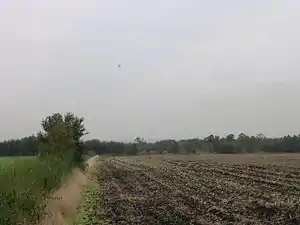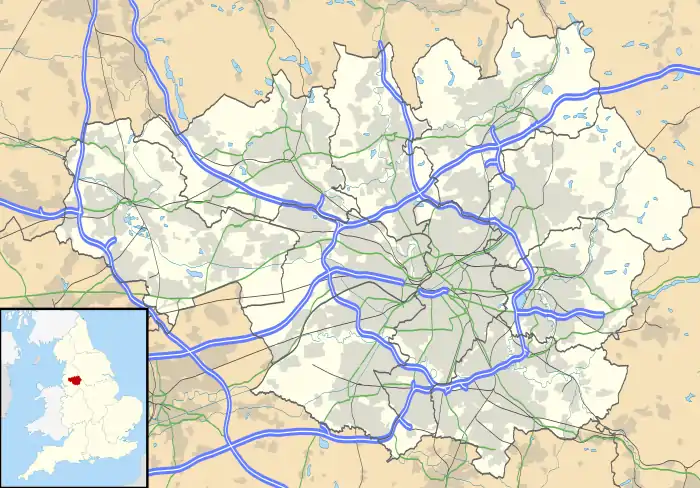Astley and Bedford Mosses
Astley and Bedford Mosses are areas of peat bog south of the Bridgewater Canal and north of the Liverpool and Manchester Railway. They are situated about 2 1⁄2 miles (4 km) south-east of Leigh, in Astley and Bedford, Greater Manchester, England. They are among the last remaining fragments of Chat Moss, the raised bog that once covered a large area, of around 10 2⁄3 square miles (28 km2), south Lancashire north of the River Mersey. Astley Moss was designated a Site of Special Scientific Interest in 1989.[2] Astley and Bedford Mosses, along with Risley Moss and Holcroft Moss, are part of Manchester Mosses, a European Union designated Special Area of Conservation.[3]
| Site of Special Scientific Interest | |
 Looking west across fields on Astley Moss | |
 Location within Greater Manchester | |
| Area of Search | Greater Manchester |
|---|---|
| Grid reference | SJ 691 975 |
| Coordinates | 53°28′22″N 2°27′02″W |
| Interest | Biological |
| Area | 228 acres (92 ha; 0.36 sq mi)[1] |
| Notification | 1989 |
Ecology
Chat Moss, a lowland raised bog, formed after the last ice age about 10,000 years ago on the site of a shallow glacial lake to the north of the River Mersey. Fen peat formed in an area colonised by reeds and rushes. Sphagnum mosses then colonised the area causing a change from fen to bog peat which became elevated forming a dome, the raised bog. Sphagnum mosses increase the acidity of the water resulting in highly specialised plant species, many of them found nowhere else.[4] The site is also important for bird species such as the merlin, hen harrier and short-eared owl.[5]
References
- "Astley & Bedford Mosses" (PDF). Natural England.
- Astley Moss, lancswt.org.uk, archived from the original on 20 July 2011, retrieved 20 January 2011
- Manchester Mosses, Joint Nature Conservation Committee, retrieved 20 January 2011
- Lowland Mosslands (pdf), Greater Manchester Biodiversity Project, p. 1, retrieved 21 January 2011
- "Astley Moss SSSI". Wigan Council. Retrieved 5 July 2018.